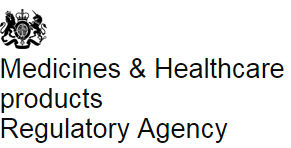预约演示
UK Government takes steps to address bias in medical devices
2024-03-11
高管变更
The government has announced action to tackle potential bias in the design and use of medical devices, as it accepts recommendations from a UK-first independent review.
The Department of Health and Social Care commissioned senior health experts to identify potential biases in these devices and recommend how to tackle them.
The government now aims to address these biases, including ensuring that pulse oximeter devices used in the NHS can be used safely across a range of skin tones, and removing racial bias from data sets used in clinical studies.
Ministers agree that unless appropriate action is taken, unfair biases can occur throughout the medical device life cycle, from research, development, and testing, to approval, deployment and post-market monitoring, as well as in the use of devices once deployed.
As a result, action is being taken to overcome potential disparities in the performance of medical devices. This includes:
Medicines and Healthcare products Regulatory Agency (MHRA) now requests that approval applications for new medical devices describe how they will address bias.
NHS guidance has been updated to highlight potential limitations of pulse oximeter devices on patients with darker skin tone.
The National Institute for Health Research (NIHR) is currently accepting funding applications for research into smarter oximeters.
The government also plans to:
Work with the MHRA to ensure regulations for medical devices are safe for patients, regardless of their background, while allowing more innovative products to be placed on the UK market. This includes a commitment to ensure pulse oximeters are safe and effective for all patients, with work underway to mitigate any inaccuracy in the devices.
Drive forward work to remove racial bias in datasets, including ensuring diverse skin tones are included in data used by researchers for clinical studies.
Support ongoing work with NHS England to upskill clinical professionals on issues including health equity.
Work with partners to improve transparency of data used in the development of medical devices using Artificial Intelligence (AI), as well as AI products which influence clinical decisions.
The government appointed Professor Dame Margaret Whitehead, professor of public health at the University of Liverpool, to lead the review. Professor Whitehead has for many years led the work of the World Health Organisation’s Collaborating Centre for Policy Research on the Determinants of Health Equity.
The review followed concerns that pulse oximeters – widely used during the COVID-19 pandemic to monitor blood oxygen levels – were not as accurate for patients with darker skin tones, which could have led to delays in treatment if dangerously low oxygen levels in patients with darker skin tone were missed. However, the review found no evidence from studies in the NHS of this differential performance affecting care.
The medical devices review focused on three areas – optical devices such as pulse oximeters, AI-enabled devices, and polygenic risk scores (PRS) in genomics.
Professor Dame Margaret Whitehead, chair of the review said: "The advance of AI in medical devices could bring great benefits, but it could also bring harm through inherent bias against certain groups in the population, notably women, people from ethnic minorities and disadvantaged socio-economic groups.
Our review reveals how existing biases and injustices in society can unwittingly be incorporated at every stage of the lifecycle of AI-enabled medical devices, and then magnified in algorithm development and machine learning.
Our recommendations therefore call for system-wide action, requiring full government support. The UK would take the lead internationally if it incorporated equity in AI-enabled medical devices into its Global AI Safety initiatives."
The review also recommended ways of developing bias-free medical devices in the future and to improve standards globally.
Dr June Raine, MHRA chief executive, said: "The MHRA acknowledges that inequities can exist within medical devices and we therefore welcome the publication of Dame Whitehead’s independent review.
We are highly committed to ensuring equitable access to safe, effective and high-quality medical devices for all individuals, and the recommendations set out in this report will support and strengthen the impact of our ongoing work in this area.
We are committed to working collaboratively with Government, regulatory bodies, healthcare professionals and stakeholders to address these issues effectively."
更多内容,请访问原始网站
文中所述内容并不反映新药情报库及其所属公司任何意见及观点,如有版权侵扰或错误之处,请及时联系我们,我们会在24小时内配合处理。
机构
适应症
靶点
-药物
-生物医药百科问答
全新生物医药AI Agent 覆盖科研全链路,让突破性发现快人一步
立即开始免费试用!
智慧芽新药情报库是智慧芽专为生命科学人士构建的基于AI的创新药情报平台,助您全方位提升您的研发与决策效率。
立即开始数据试用!
智慧芽新药库数据也通过智慧芽数据服务平台,以API或者数据包形式对外开放,助您更加充分利用智慧芽新药情报信息。





